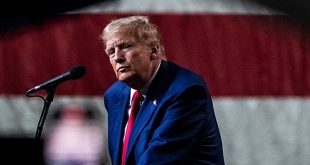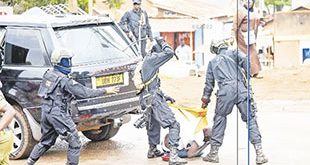
Secondly, as of December 2019, there were 15 million internet-accounts in Uganda, 98% of which were on mobile devises – largely mobile phones. Even if we assume many people have two lines, it is possible Uganda has at least 12 million people with access to internet, 90% of whom could be 18 years and above. Therefore even with all the restrictions, the opposition will have access to a sizable voting population.
Thirdly, the current restrictions on mass rallies have opened a big opportunity for house to house campaigning, which Ugandan politicians rarely do but which is favorable to the opposition. Because it does not involve mass rallies, it is a style of campaigning that places the state, the ruling NRM party and the associated intelligence agencies at a significant disadvantage. Here, it will be hard to tell the size of opposition support and thereby limit the crackdown. Besides the security services are not going to raid every single home to chase away an opposition activist canvassing for votes.
There is an even more attractive angle to this “scientific” election which should make the opposition smile. Every opinion poll has shown that the lower you climb the income ladder, the lower you climb the education ladder and the deeper you go into the rural areas, the higher is Museveni’s support. Equally, the opposite holds: the higher you climb the income ladder (except for the top 1% richest Ugandans), the higher you climb the education ladder and the nearer you get to urban areas, the lower is Museveni’s support (or to put it in other words, the higher is the opposition support).
Therefore, most of the people with mobile phones; especially most of the people with access to smart phones and therefore access to social media are potential voters for the opposition. Therefore, an election conducted largely on social media has the potential to improve the chances of the opposition if they can see it. The problem is that this voter segment makes a lot of noise but does not vote. The challenge for the opposition is to rally these people to come out and vote.
Secondly, urban areas where Museveni has the least support (and are therefore the opposition’s strongholds) always register lower voter turnout. For instance, Kampala and its surrounding Wakiso district had nearly 2 million registered voters in the 2016 elections but only 800,000 (40%) voted. Meanwhile, in areas like Kiruhura and Nakaseke (the cattle corridor), which form Museveni’s strongest base, voter turnout in many polling stations was 100%. This is the time for the opposition to use social media to increase voter turnout in these areas where such communication is effective.
But there is a challenge. The most enthusiastic segment of the opposition on social media is radical, uncouth, undemocratic, intolerant and uncompromising. Yet a large section of people on social media, because they are urban, educated, smart and cool, prefer a more moderate posture. They are tired of Museveni and his NRM but do not find the opposition an attractive alternative. The opposition; especially Defiance (Besigye) and People Power (Bobi Wine) will need to tone their rhetoric down even if it is at the price of reducing the fanaticism of their radical extremist base. But will they listen?
****
 The Independent Uganda: You get the Truth we Pay the Price
The Independent Uganda: You get the Truth we Pay the Price



You have argued many times before as you have done in this column,?but those arguments are flawed . You ignore the fact that among the main reasons Besigye and Bobi attract crowds is because of the way they appeal to voters. Why should they change what works better ? Okay, Gen Muntu is a good example of a candidate that ticks all the boxes of the kind you describe can attract moderates, let’s wait and see how he performs. Right? Don’t forget we had candidates like him before and performed very badly. Nobert Mao, Gen. Biraro, Bindandi Ssali etc. Again your point of museveni unleashing terror on Presidential candidates making voters scared and voting for m7 is not without flaws. Most terror was unleashed on candidates in 2006 and 2016; yet the opposition did well. In 2011 where there was a big introduction of money by m7 to buy votes, rather than violence, the opposition did not do well. All in all, the arguments in your column are flawed as I have shown above. Candidates should campaign openly. It works better for opposition.
For some;Elections are an outing otherwise i see no candidate defeating M7.